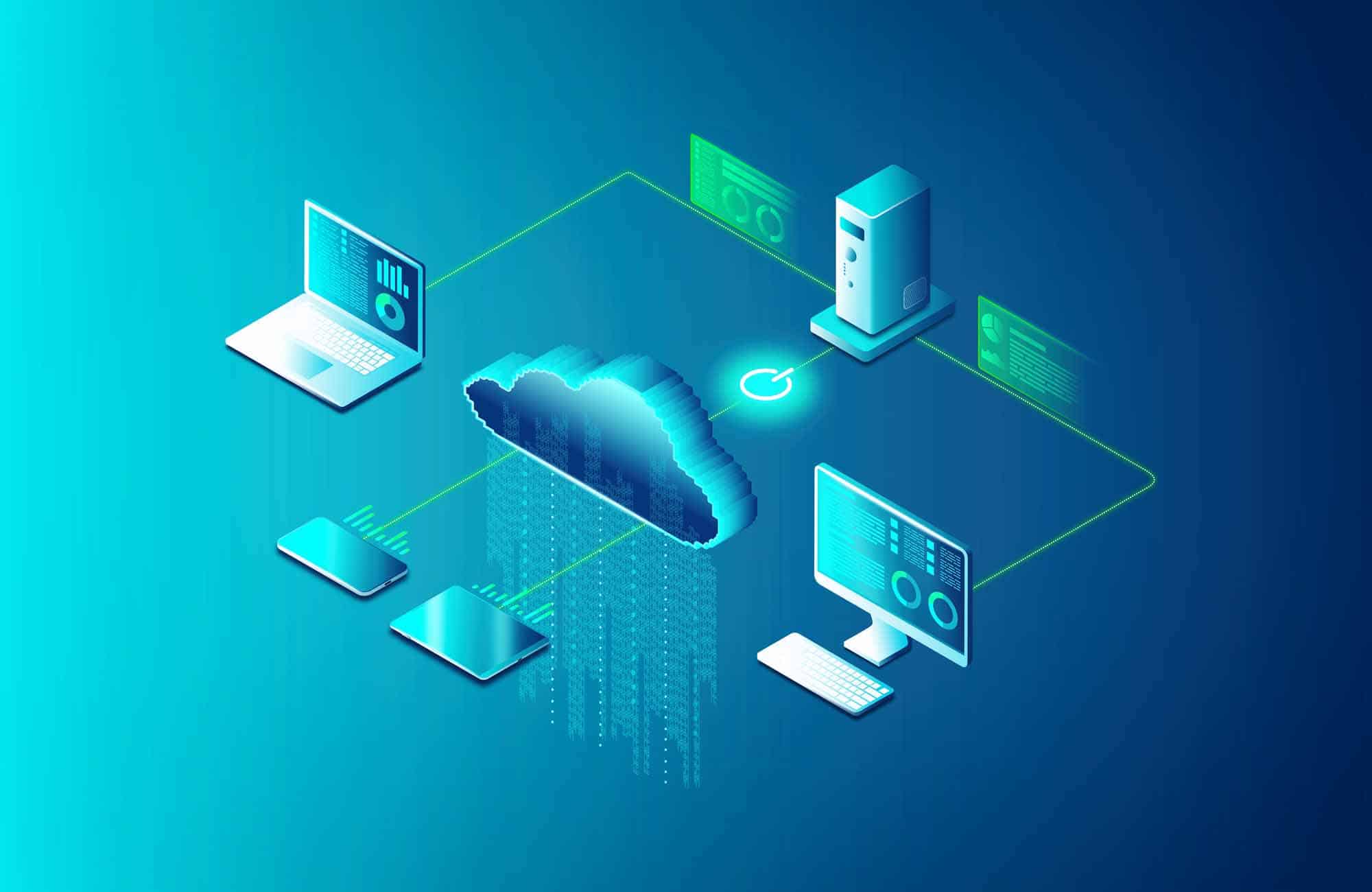Ever faced the headache of IT systems that just don’t sync with your business’s rhythm? It’s a common groan among small and medium business owners.
Imagine, amidst your bustling workday, your on-premise servers decide to crash. Or perhaps, your cloud service is mysteriously sluggish on the very day you need it most. These aren’t just hypotheticals; they’re real, day-ruining issues that businesses like yours grapple with.
The tug-of-war between on premise vs off premise solutions is more than a technical choice. It’s about finding harmony between technology and your business flow. Read on to discover a solution that understands and adapts to your unique business needs, not the other way around.
What Are Cloud-Based Services?
Cloud-based services are transforming how small and medium-sized businesses handle their IT needs. At its core, cloud computing allows businesses to access and store data over the internet, rather than through physical hardware on their premises. This technology leverages cloud data centers, which are robust, remote servers maintained by third-party providers.
One of the main attractions of cloud-based services is their cost efficiency. Traditional IT infrastructure often requires a hefty initial investment in hardware and software.
However, with cloud-based computer technology, businesses can essentially rent these resources to drastically reduce upfront costs. This model also offers the flexibility to pay as you grow, a boon for businesses with fluctuating demands.
Another key advantage is scalability. Cloud services can easily scale up or down based on a business’s needs.
For example, during peak periods, a business can increase its cloud-based resources to handle higher traffic and ensure smooth operations. Once the peak passes, it can scale back down to avoid the cost of maintaining underused resources.
Moreover, cloud-based services provide enhanced security features. Providers invest heavily in security measures to protect cloud data. This means small businesses get access to top-tier security features, which would be prohibitively expensive to implement on their own.
What Are On-Premises Solutions?
On-premise IT solutions refer to the traditional model where a business owns and operates its servers and infrastructure onsite. These onsite data centers are typically housed within the business’s premises and are managed by its IT team.
One of the primary advantages of an on premise data center is control. Businesses have complete control over their IT environment, including the hardware, software, and data. This control extends to security measures, where businesses can implement and manage security protocols tailored to their specific needs.
Another benefit of on-premise solutions is performance. Since the servers are located onsite, businesses often experience faster data processing and retrieval times. This is crucial for applications that require quick response times.
This benefit can be particularly important for industries that handle large volumes of data or have high-performance computing needs.
Moreover, on-premise solutions offer businesses a higher degree of customization. They can tailor their IT infrastructure to fit their specific operational needs, something that might be limited in a cloud-based environment.
For instance, businesses with unique software requirements may find it easier to meet these needs with an on-premise setup.
However, it’s important to note that on-premise solutions generally require a larger capital investment compared to cloud-based services. They also demand a dedicated IT team for ongoing maintenance and troubleshooting, which can add to the operational costs.
Comparing Cost Implications
When deciding between cloud-based services and an on-premise data center, understanding the cost implications is crucial. The primary factor in this comparison is the difference in initial investment and ongoing expenses.
For on-premise solutions, the initial cost is typically higher. Businesses need to purchase hardware, software licenses, and infrastructure.
For instance, setting up an on-premise data center can involve significant investment in servers, storage, and networking equipment. Additionally, there are costs for securing and housing this equipment, like building a secure, climate-controlled room.
On the other hand, cloud-based services often come with a lower initial cost. Since these services operate on a subscription model, businesses pay a regular fee based on usage. This approach eliminates the need for large upfront investments in hardware and software.
For example, a small business can access sophisticated cloud-based computing services for a monthly fee. This would be far less than the cost of setting up and maintaining its own servers.
However, it’s important to consider long-term costs. While on-premise solutions have higher upfront costs, cloud services can lead to higher ongoing expenses, especially as a business’s needs grow. For example, as data storage or computing needs increase, the monthly costs for cloud services may rise significantly.
Another cost aspect is maintenance and upgrades. On-premise solutions require a dedicated IT staff to manage and maintain the infrastructure, which adds to the operational costs. In contrast, cloud-based services include maintenance and updates in their subscription fee which can potentially offer cost savings in the long run.
Security and Compliance
When it comes to managing IT services, security and compliance are front and center. Both cloud-based and on-premise solutions offer unique approaches to these crucial aspects, each with its strengths and considerations.
In the world of cloud computing, security is often a top priority for providers. These companies invest heavily in advanced security measures to protect their infrastructure and, by extension, their clients’ data. This includes deploying cutting-edge encryption, firewalls, and intrusion detection systems.
For example, major cloud service providers use multi-factor authentication and continuously monitor their systems for suspicious activities. These offer a level of security that might be out of reach for individual businesses to implement on their own.
Compliance is another area where cloud-based services shine. Providers make it a point to stay up-to-date with the latest regulatory requirements, such as GDPR or HIPAA, and ensure their services comply with these regulations.
This is a big plus for businesses that handle sensitive data and need to meet strict compliance standards. By using cloud services, these businesses can outsource much of the heavy lifting involved in staying compliant.
On the other hand, on-premise solutions offer businesses complete control over their security and compliance measures. This can be especially important for organizations with highly specific security needs or those operating in industries with complex regulatory environments.
For instance, a financial services company might opt for an on-premise solution to have full control over its data security and meet specific industry regulations.
However, it’s essential to note that with great control comes great responsibility. Businesses opting for on-premise solutions must invest in the necessary security infrastructure and expertise to protect their data effectively.
They also need to keep abreast of compliance regulations and ensure their systems are updated accordingly, which can be both time-consuming and costly.
Performance and Accessibility
Performance and accessibility are key factors in the debate between cloud-based and on-premise IT solutions. When it comes to performance, on-premise solutions often have the edge in speed, as the data doesn’t have to travel over the internet.
This can be crucial for businesses that rely on real-time data processing. For instance, a manufacturing company using complex machinery might prefer on-premise solutions for faster response times.
However, cloud services are known for their impressive uptime records. Top cloud providers boast an uptime of 99.9% or higher, ensuring that businesses have consistent access to their data and applications. This reliability is vital for businesses that operate around the clock or depend on continuous online presence.
In terms of accessibility, cloud services offer unparalleled advantages, especially for remote work and global operations. Employees can access cloud data and applications from anywhere with an internet connection. A key factor to enable flexibility and mobility.
This feature has become increasingly important, as seen during the rise of remote work trends where businesses relied heavily on cloud services for seamless operations.
Tailoring to Your Business Needs
Customizing IT solutions to fit specific business needs is crucial, especially for small business IT services. Every business has unique challenges and goals, and a one-size-fits-all approach rarely works.
For small businesses, tailored IT solutions can mean the difference between thriving and just surviving.
This is where companies like Vertical IT Solutions come into play. We focus on understanding the unique needs of each business and then crafting IT solutions that align with those needs. Whether it’s providing enhanced data security for a law firm or ensuring reliable cloud access for a travel agency, the goal is to offer solutions that not only solve current problems but also support future growth.
Tailoring solutions also means considering the business’s size, budget, and industry-specific requirements. For instance, a small retail business might benefit more from cloud-based inventory management systems, while a local healthcare provider might need an on-premise solution for sensitive patient data.
The key is to find the right balance that offers efficiency, security, and scalability tailored to each business’s unique landscape.
On Premise Vs Off Premise: A Strategic Business Move
In this deep dive into on premise vs off premise IT solutions, we’ve unpacked the essentials to empower your decision. It’s clear that the right IT strategy is crucial for business agility and growth.
At Vertical IT Solutions, we specialize in crafting tailored IT strategies to ensure your business harnesses the right technology for your unique needs. Don’t leave your IT to chance. Take the first step towards a streamlined, efficient IT infrastructure, and schedule a free consultation with us today.



